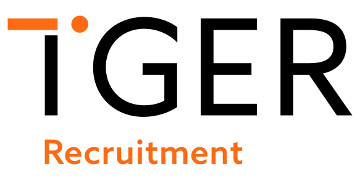What’s included in the new proposal?
The proposal defines targeted support. If implemented, it would enable organisations to use limited information to guide people towards products, services and specific courses of action.
Any suggestions are likely to be made with the context that they are appropriate for “people like you”.
Such suggestions aim to be helpful to everyone in a specific situation (e.g. based around age or parental status).
Would the proposals help employees engage with their financial life?
They would, for two main reasons.
First, they would engage the part of the brain that deals with social comparison. We tend to be more alert and responsive to opportunities when we compare ourselves to people that are more like us.
Secondly, employees would be offered a realistic and compelling benchmark. After all, how do you know if you’re on track for retirement unless you’re able to compare against others of a similar age and with a similar salary?
Read more: Employees rely more on company benefits as costs rise
Would the proposals increase uptake of employee benefits?
There is significant potential for this.
The most obvious area of impact is pensions. It’s notoriously hard to engage people with pensions as the time horizon is so long.
But these proposals could allow organisations to be prescriptive in educating employees about what needs to be paid into a pension to afford a specific lifestyle in retirement, when taking into account things like age, income, dependents and other relevant factors.
The clear social comparison and the clarity over what actions individuals should take could be catalysts for people to engage more widely with their pension, and make positive changes to ensure a more comfortable retirement.
Outside of pensions, other benefits could see increased uptake as well due to these proposals, where the main catalyst will be comparison with colleagues. For example: “People like you at your organisation have claimed back all their dentist fees on the health cash plan. Why haven’t you?”
Caveat: The importance of managing social comparison
If employees see that others who are in a similar position are a million miles ahead of them, it could cause stress, anxiety and weaken engagement – exactly the opposite of what was intended. On the flipside, doing very well can also present an issue. Seeing that you are doing a lot better than your peers may lead to complacency.
Read more: How to make financial wellbeing work for everyone
Whether someone is in a broadly similar situation compared to people like them, far ahead, or far behind, they’re all on their own personal financial journey. Financial wellbeing is a lifelong journey of self-improvement, reflection and making continuous, conscious decisions. It’s all about being better tomorrow than today.
As a people professional, how should I respond to the proposal?
At the moment, the proposal is just a proposal.
But it’s underpinned by the idea that more targeted, relevant information is more likely to encourage positive behavioural change.
We have known this for a long time: wellbeing communications targeted at cohorts always perform better than generalised communication.
Whether the proposal becomes part of the regulatory framework or not, we can improve financial wellbeing efforts at our organisations by focusing on two main areas.
Take steps to better understand your workforce
If you had to slice your workforce into cohorts, how would you do it most effectively? What are the unifying characteristics? What groups would you carve out?
Whatever you are communicating, the more you can talk to people as individuals rather than employees, the more successful you will be. It’s not practical to send a personalised email to every single employee, but splitting the team into cohorts strikes the right balance between effectiveness and effort.
Implement support that responds to individual needs
The new proposal would certainly help organisations provide guidance that is more personalised to individuals, but it’s important to recognise that an individual’s financial wellbeing is made up of a huge number of variables, including their own relationship with money.
That’s why the gold standard of financial wellbeing support is personalised financial guidance. This is support that looks holistically at the individual including their financial situation, their relationship with money, their goals and dreams and supports them to make positive behavioural change to make the right financial decisions to support the life they want to lead.
Sam Lathey is CEO of financial wellbeing platform Bippit











